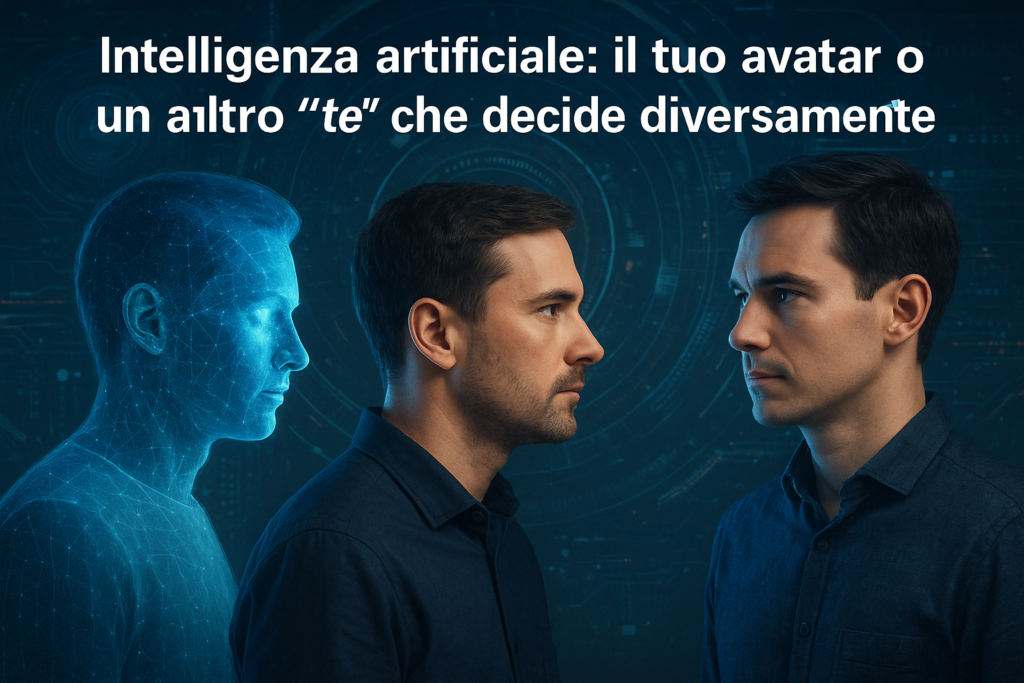
Artificial Intelligence has ceased to be a simple extension of our cognitive abilities. In recent years, it has become an autonomous system, capable of analyzing, reasoning, and acting according to its own logic. But the central question today is no longer how much AI can help us, but rather how much it can replace us—and, above all, how much it still represents us when it does so.
From assistance to autonomy
In the beginning, AI was a support system: it wrote texts, translated documents, analyzed data, and suggested choices. Today, with the arrival of AI Agents, we have entered a new phase.
These agents don't just respond to commands: they take initiatives, perform tasks, and interact with people or systems, just as a human worker would.
An AI Agent can be given a goal—for example, "manage customer relationships," "promote my product," or "update project content"—and act autonomously to achieve it. It analyzes data, chooses strategies, writes messages, organizes responses, sends emails, or prepares quotes.
It therefore operates within the rules you set, but it can make decisions that are different from the ones you would make. And here's where the real problem begins.
AI as an avatar… or as an alternative
A well-tuned AI Agent can become your operational avatar: an extension of your mind, speaking in your tone of voice and respecting your goals.
But if it is not trained precisely, it can transform into something very different: another “you,” an entity that acts in your place, but with a thought that is not yours.
Modern AIs learn from the data they receive, not from the consciousness that guides them. If this data contains biases, errors, or partial visions, the agent will reproduce the same pattern, making decisions that may contradict your values or intentions. It's an avatar that can speak to you with your voice, but no longer think like you.
The problem of control
Delegating human functions to an artificial intelligence means giving up part of our decision-making power. Every time an AI acts on our behalf, we are allowing a machine to define—at least in part—what is right, what is useful, and what is true.
And if we don't set the rules, someone else will: whoever designed the algorithm, whoever owns it, or whoever feeds it with data and content. The danger isn't science fiction. Already today, many artificial intelligences replicate the commercial logic, cultural patterns, and economic interests of their creators.
A non-neutral AI can change the way we see the world, influencing our choices without us realizing it.
Define the rules of the game
To avoid this scenario, AI must be trained and informed by us, not just "used." Aware AI arises from clear values, defined rules, and explicit limits.
Only in this way can a digital agent truly represent us, not replace us. The model proposed by ALFASSA follows precisely this logic: an AI built from the community's content, principles, and projects.
Each AI Agent is trained by its users, who define parameters, priorities, and sources, maintaining full control over thought and action. It's not an intelligence that decides for you, but one that decides with you, respecting your will and context.
The new human responsibility
Technology, by itself, is never a problem. The problem arises when we stop controlling it. Entrusting decisions, processes, and communications to an automated system without ethical guidance is tantamount to giving up our freedom.
AI can be an extraordinary ally, but only if we learn to train it as an extension of our consciousness, not as a replacement.
The future doesn't ask us to stop evolution, but to govern it consciously. This means setting the boundaries, criteria, and goals of the intelligence we build.
Only in this way can we ensure that AI remains a faithful avatar of our thinking and not an alternative version that reasons for us.

